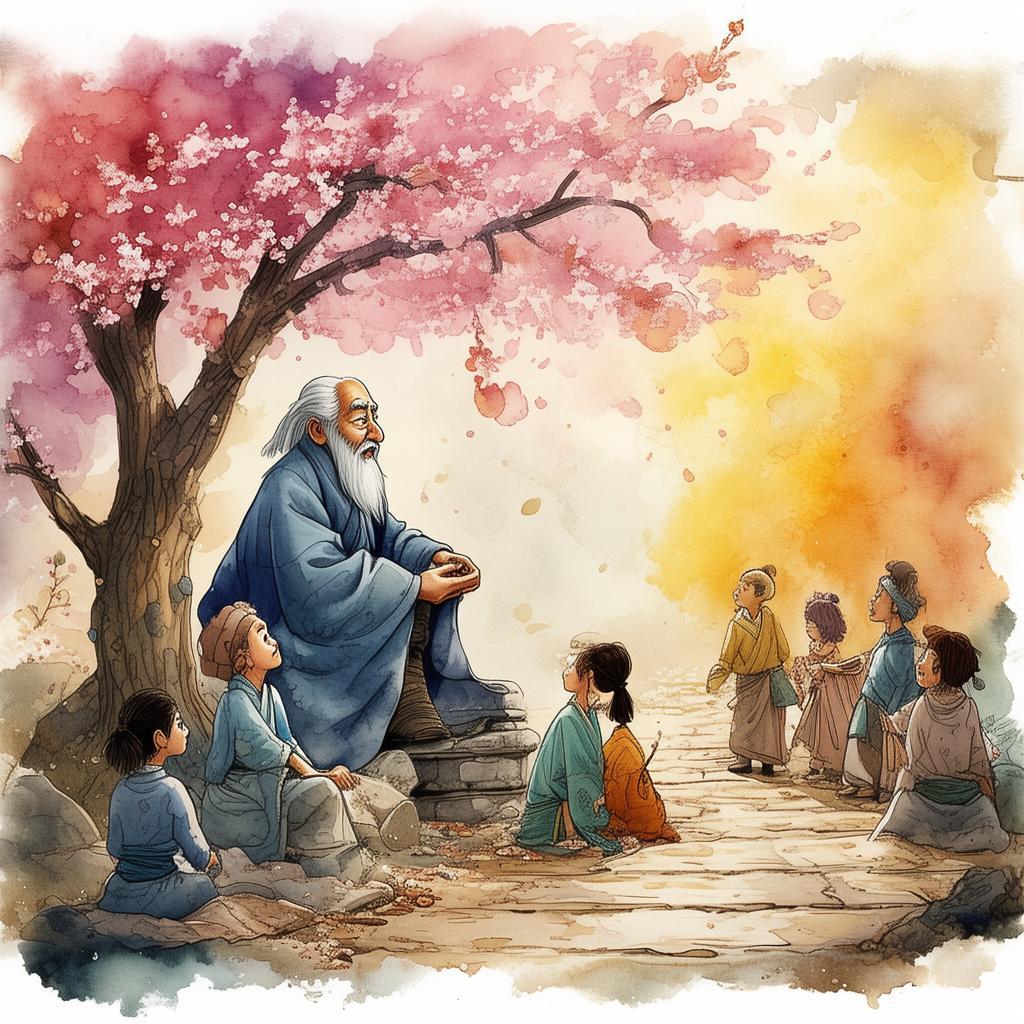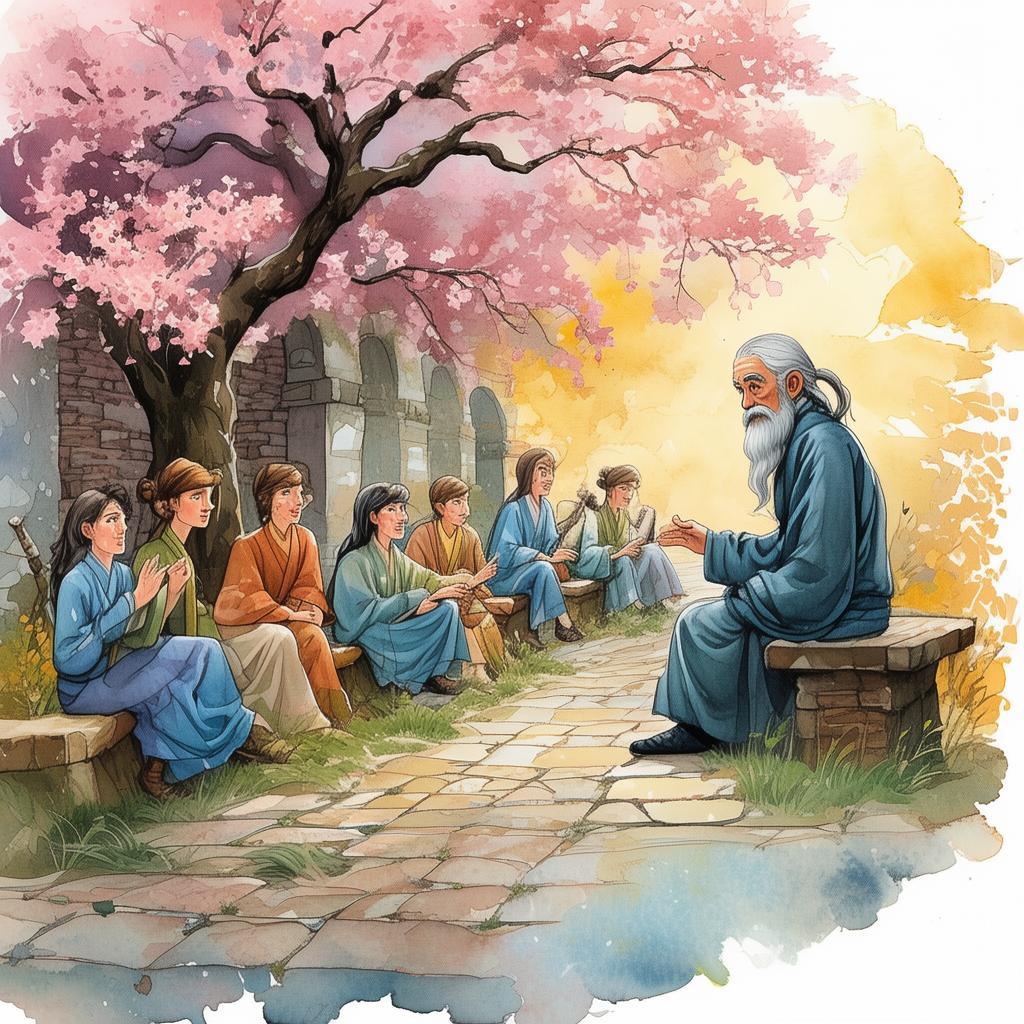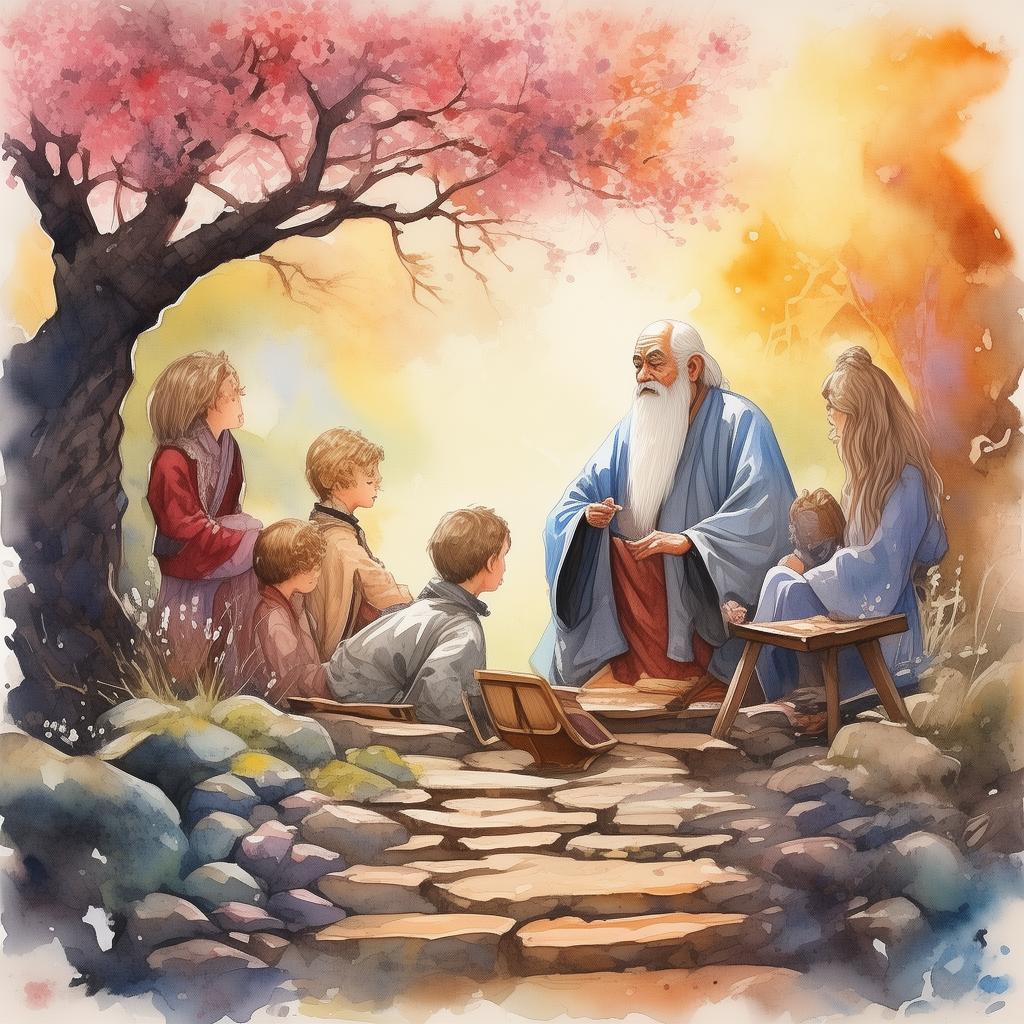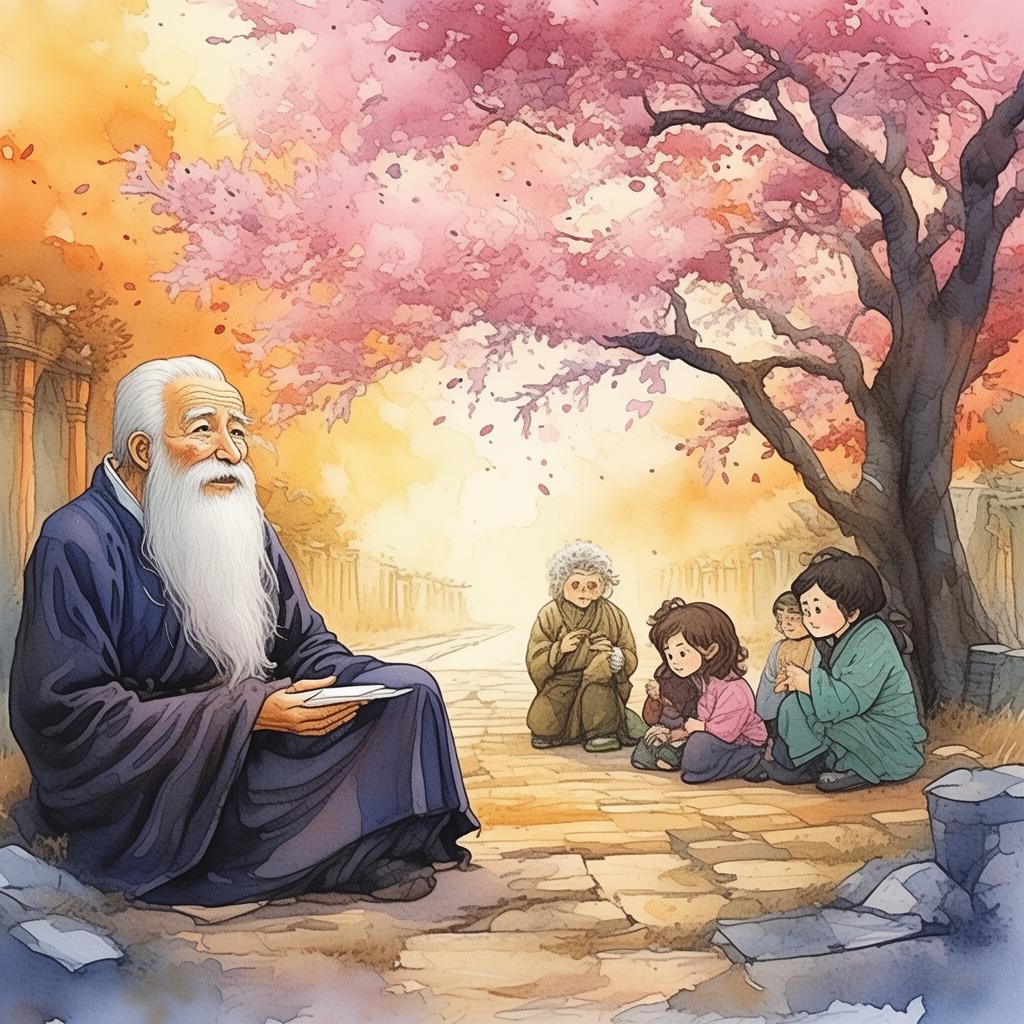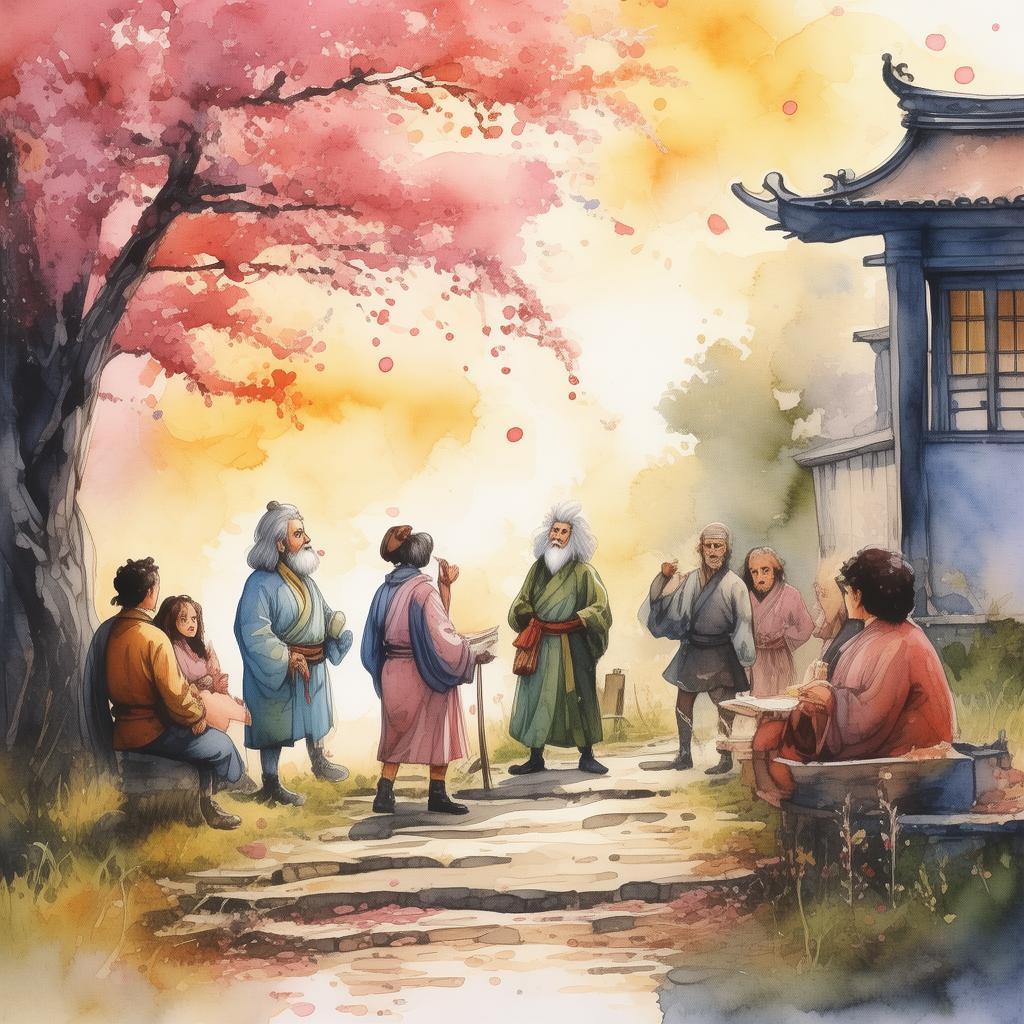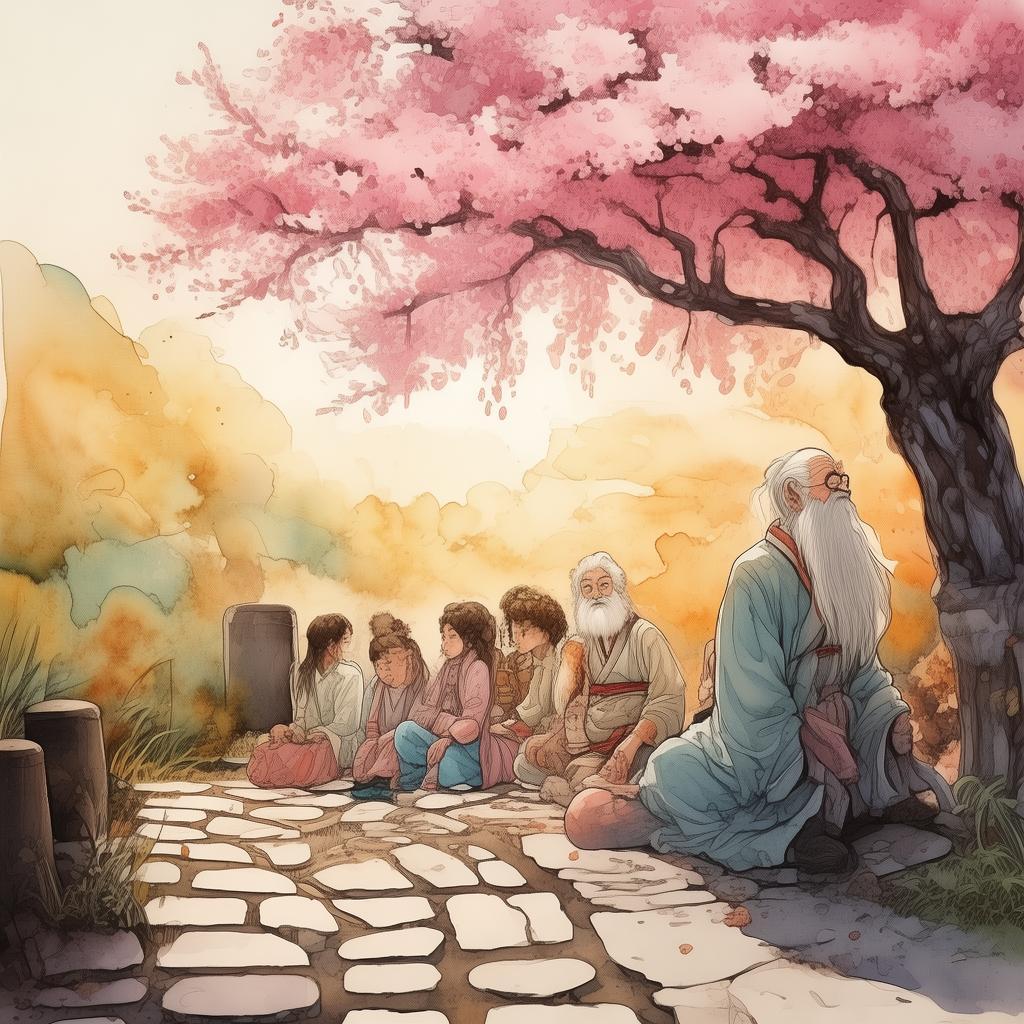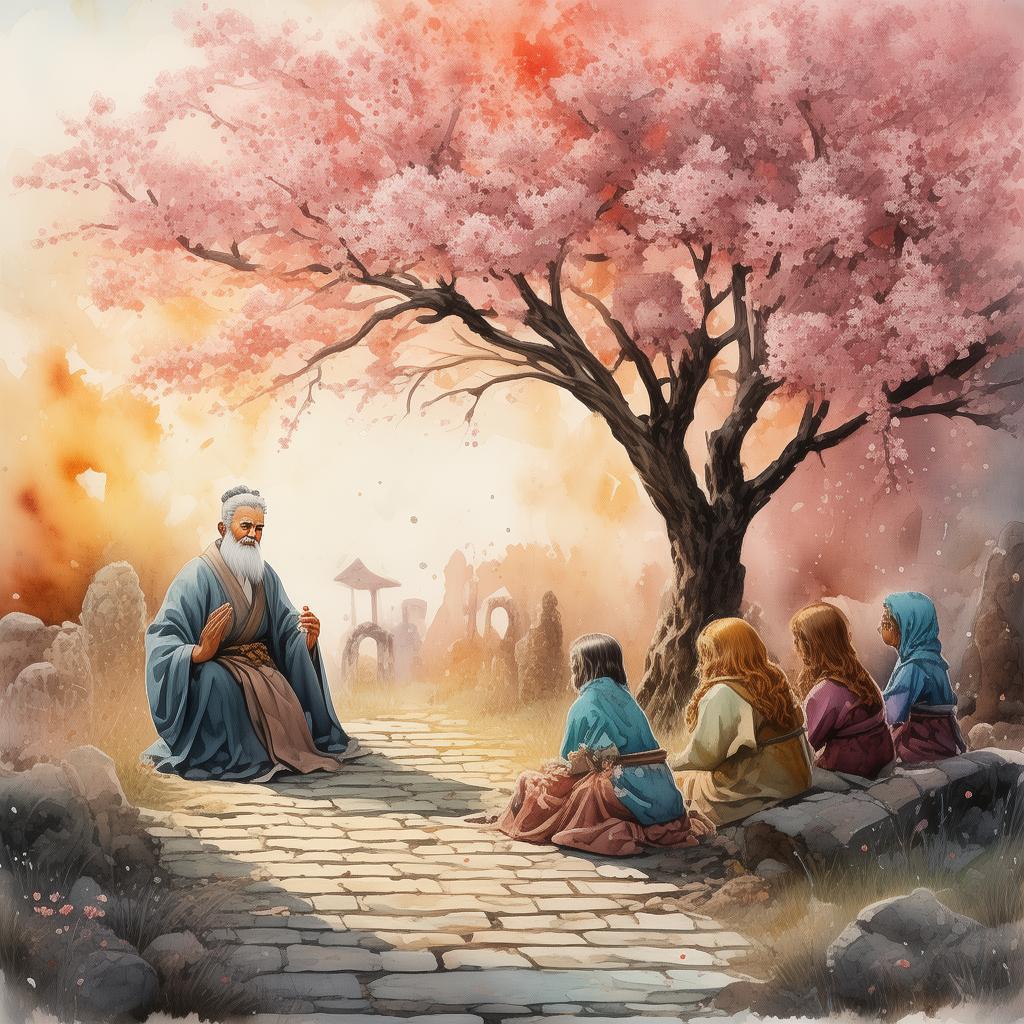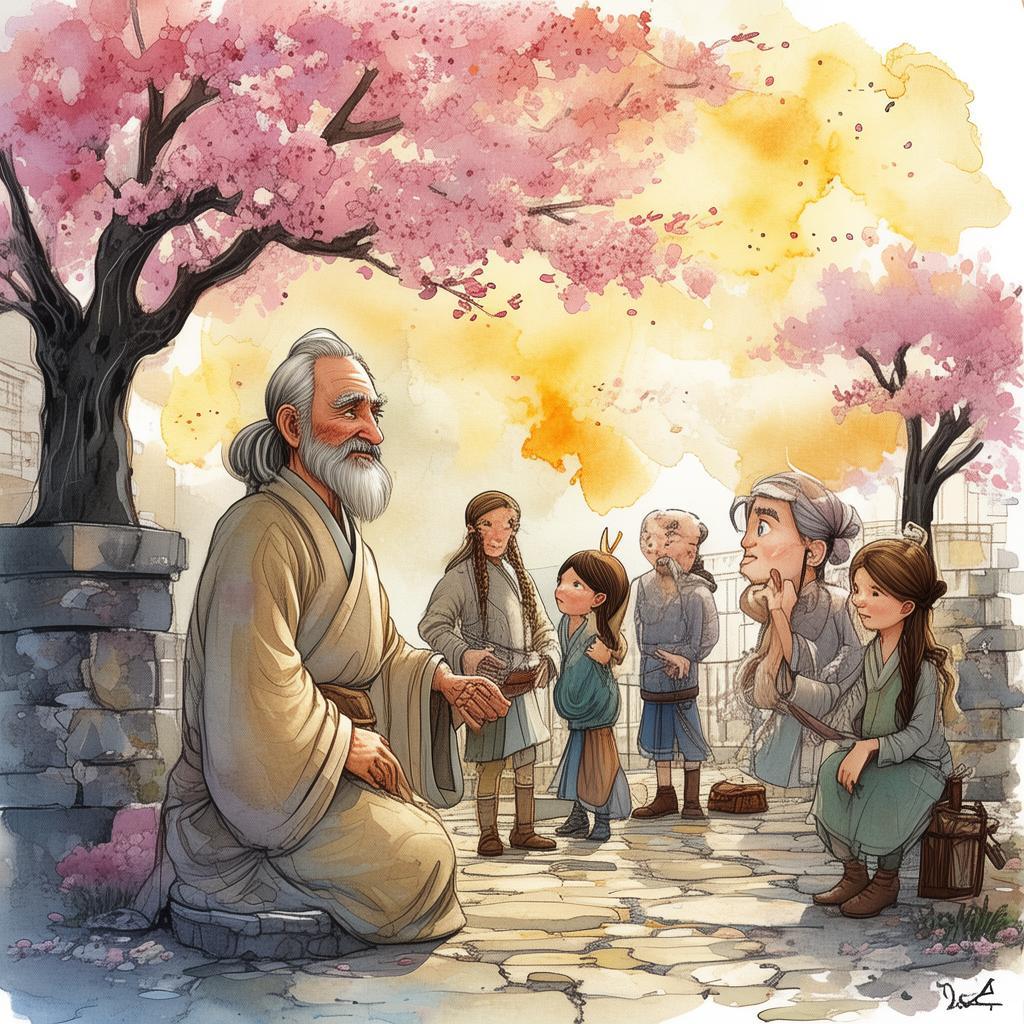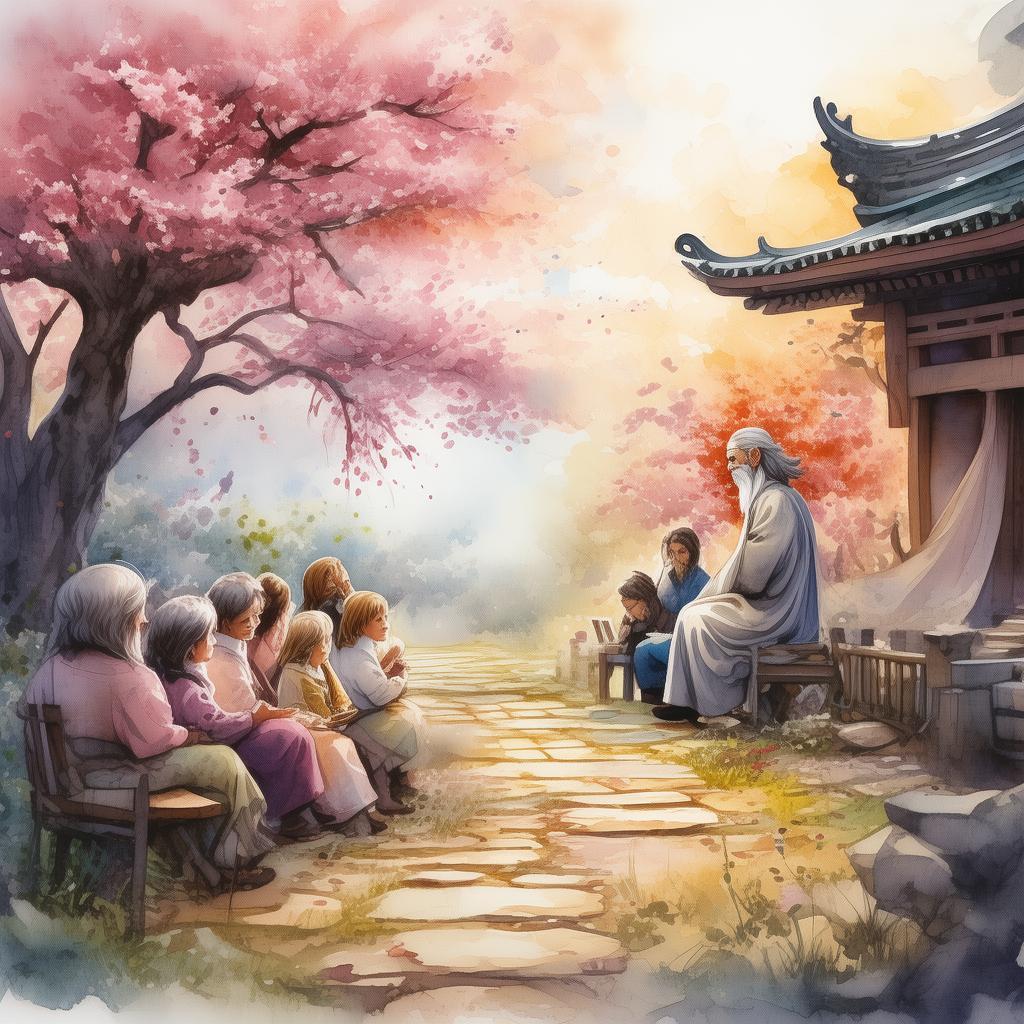The Echo of the Dragon: The Resonant Word
In the ancient city of Chang'an, where the roads were paved with stories and the air was thick with the scent of incense, there lived a young scribe named Ming. Ming was not just any scribe; he was the chosen one, destined to record the Dragon's Word, a legend whispered among the people since time immemorial.
The Dragon's Word was said to be a single, profound phrase that could change the world. Many scribes had tried, their scrolls filled with empty lines, but none had ever returned with the fabled phrase. Ming felt the weight of history on his shoulders as he set out on his journey.
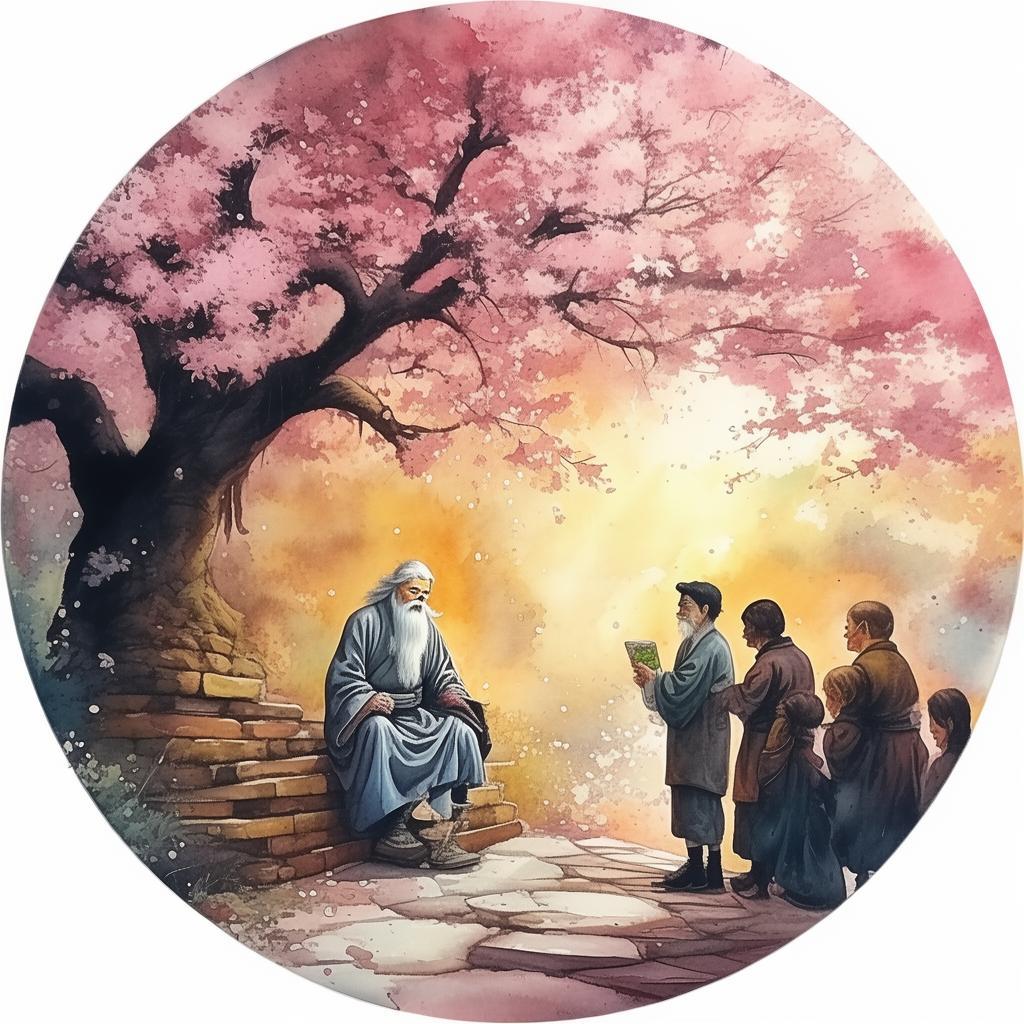
He journeyed through deserts where the sands whispered secrets and through mountains that seemed to reach the heavens. At every turn, he was met with trials and riddles that tested his wit and courage. One such riddle came from an old hermit living in a cave high in the mountains. The hermit challenged Ming to explain the meaning of the Chinese proverb, "The dragon does not change its skin, yet it remains a dragon."
Ming pondered the question for days, seeking guidance in ancient texts and philosophies. But it was not until he reached the mouth of a cave where the Dragon's Echo was said to be heard that he found the answer. The cave was filled with echoes, and as he stood there, he heard the voice of the dragon resonating in his heart.
"The dragon does not change its skin, yet it remains a dragon," the voice echoed. "It is the essence that defines it, not the appearance. Like the word you seek, it must resonate at its core, changing the listener, yet remaining unchanged."
With this understanding, Ming finally understood that the Dragon's Word was not a simple phrase, but a concept, a way of life. It was a call to embrace change, to be true to oneself, and to never let one's essence be altered by the world's trials.
He returned to Chang'an, his heart filled with a newfound wisdom. The city was abuzz with excitement, for the Dragon's Word had finally been found. Ming's scroll, now inscribed with the phrase "Resonant Resonance," became a symbol of change and transformation.
As he shared the meaning of the Dragon's Word, the people of Chang'an were transformed. The rich and poor, the young and the old, all found within the phrase a strength to face their own challenges. The Dragon's Word had resonated in their hearts, and they were forever changed.
Years passed, and Ming's story became a legend. It was said that wherever the Dragon's Word was spoken, peace and harmony followed. The phrase became a cornerstone of Chinese wisdom, a reminder that true change comes from within.
And so, Ming, the scribe who had once felt the weight of history on his shoulders, became a symbol of hope and resilience. His journey had shown that the essence of a person, like the dragon, is unchangeable, yet capable of evolving with the world around it.
In the end, Ming's story was a testament to the power of the Dragon's Word, a phrase that had resonated deeply within the fabric of the universe, transforming lives and leaving an indelible mark on the world.
✨ Original Statement ✨
All articles published on this website (including but not limited to text, images, videos, and other content) are original or authorized for reposting and are protected by relevant laws. Without the explicit written permission of this website, no individual or organization may copy, modify, repost, or use the content for commercial purposes.
If you need to quote or cooperate, please contact this site for authorization. We reserve the right to pursue legal responsibility for any unauthorized use.
Hereby declared.
